News
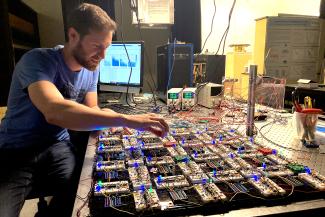
A first, physical system learns nonlinear tasks without a traditional computer processor
Sam Dillavou, a postdoc in the Durian Research Group in the School of Arts & Sciences, built the components of this contrastive local learning network, an analog system that is fast, low-power, scalable, and able to learn nonlinear tasks. (Image: Erica Moser)
Penn physics and engineering researchers have created a local learning network that is fast, low-power, and scalable.
Read full article here
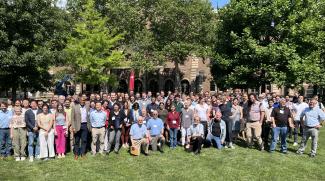
Center for Soft & Living Matter Kickoff Meeting
The new Center for Soft and Living Matter at the University of Pennsylvania brings together over 60 faculty and their groups from more than 10 departments across campus in order to facilitate collaborations and to help attract outstanding students and postdocs.
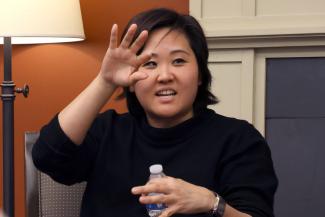
From English Major to Doctor, Lawyer, VP
Vivian Lee, C’99, CGS’01, M’06, considers herself a Penn lifer, having done undergrad, medical school, and medical residency here before becoming an assistant professor of ophthalmology at the Perelman School of Medicine.
Read full article here
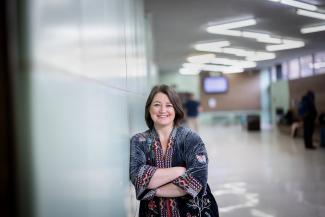
Researchers upend theory about the formation of the Milky Way Galaxy
New findings by Robyn Sanderson and collaborators suggest galaxy’s last major collision was billions of years later than previously thought.
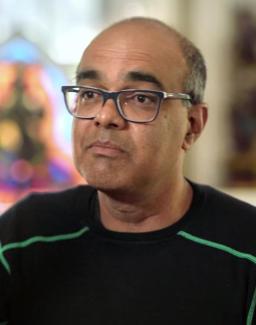
Oxford University selects Vijay Balasubramanian as the George Eastman Professor for the 2024-2025 academic year
The Eastman Professorship was established in 1929 by George Eastman, founder of the Eastman Kodak Company. Eastman created a chair at Oxford University to be filled on a visiting basis by senior American Scholars of the highest distinction. Each appointment is made for one year. The fund which supports the Eastman Professorship is administered by the Board of Directors of the AARS through the American Trust For Oxford University.
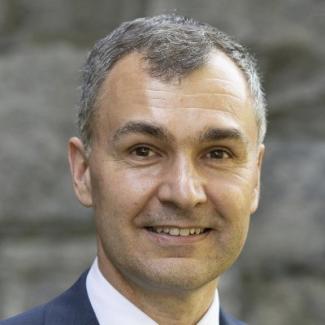
Physics for Architects in Active-Learning Format by Bill Ashmanskas
The pandemic motivated me to convert Physics for Architects into SAIL (Structured, Active, In-Class Learning) format. Our classroom now buzzes with activity, making physics as engaging for the 50 students as it is for me.
PHYS 0008 is a sector course tailored to visual learners, many eager to excel in a later Architectural Structures course. Most students have seldom used math since high-school calculus or physics.
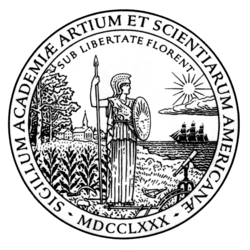
American Academy of Arts and Sciences recently elected Charlie Kane as a new member
Founded in 1780, the American Academy of Arts and Sciences honors excellence and convenes leaders from every field of human endeavor to examine new ideas, address issues of importance to the nation and the world, and work together “to cultivate every art and science which may tend to advance the interest, honor, dignity, and happiness of a free, independent, and virtuous people.”
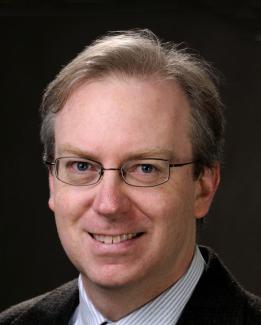
Charlie Kane Recipient of Ira H. Abrams Memorial Award for Distinguished Teaching
The Ira H. Abrams Memorial Award for Distinguished Teaching for Faculty in the School of Arts and Sciences seeks to recognize teaching that is intellectually rigorous and exceptionally coherent and that leads to an informed understanding of a discipline. Recipients of the Ira Abrams Memorial Award are expected to embody high standards of integrity and fairness, to have a strong commitment to learning, and to be open to new ideas. As the School of Arts and Sciences' highest teaching honor, the Abrams Award recognizes faculty who have sustained records of teaching excellence.
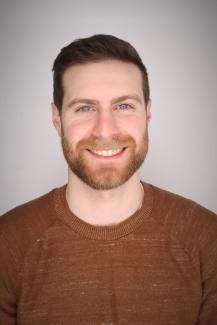
Sam Dillavou receives GSNP Annual Postdoctoral Speaker Award
The annual Postdoctoral Speaker Award sponsored by the American Physical Society’s Topical Group on Statistical and Nonlinear Physics (GSNP) was won by Sam Dillavou, for his talk on “The Ensemble Peels the Onion: Emergent Learning Via Sequential Error Mode Reduction.” Sam’s work is part of IRG-1 on Learning Metamaterials, in the lab of Doug Durian in collaboration with Andrea Liu and Mark Miskin. Read more here.
